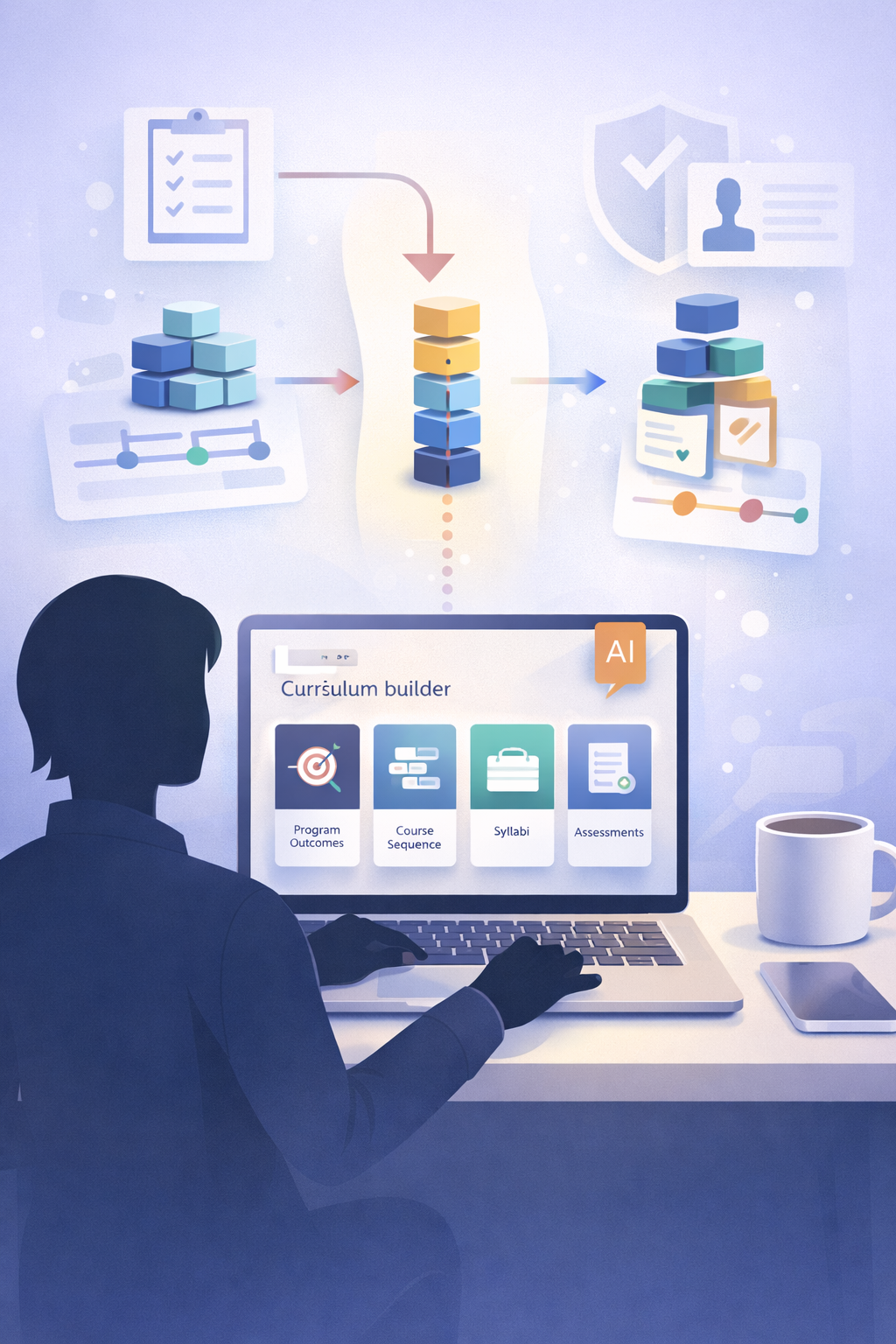AI-Powered Curriculum Development: How New Universities Can Build Accreditation-Ready Programs in Weeks, Not Months
Higher Education in 2022: Post-Pandemic Effect

It’s true to say that the impact of COVID-19 made some big changes in the higher education sector. From falling enrollment rates to a massive shift away from traditional learning, the face of post-secondary education won’t probably be the same.
I’m planning to make this article a little different from most others that I publish here on the topics of accreditation and university licensing.
Today I will be reflecting on the effects of the pandemic on higher education in the US and what you can expect in 2022.
Student Enrollments Will Continue To Fall
The number of students enrolled in colleges has decreased by a whole 1 million people since the start of the pandemic.
According to this data, the colleges and universities in the U.S have seen a dramatic drop of almost 500,000 undergrads since the fall of 2021, and this number is rising.
What’s interesting - those students that seek bachelor's degrees at four-year colleges make about half of the shrinking number. This phenomenon doesn’t just apply to community colleges, but also universities. Students are now rethinking the value of postsecondary education and the trend won’t go anywhere anytime soon.
HyFlex Learning Is On The Rise
During the past two years, postsecondary students were given the option to attend their classes online. As the pandemic-related mandates ease and pressure to return to physical classes increase, institutions are pivoting towards HyFlex learning which is a hybrid-flexible format that allows students to attend classes both in-person and virtually, while faculty can toggle their attention between those two environments.
These kinds of courses are hard to build and even harder to teach, however. Some faculties are even concerned that HyFlex exposes students to the worst of both onsite and online worlds. At this point, only time will tell how beneficial (or not) this model will prove to be.
A Shift From Traditional Learning to Competency-Based Learning
Competency-based education was introduced as an alternative to traditional education frameworks in the early 1960s. This new model focused more on a student’s mastery of skills rather than the mastery of concepts.
In the last few years, there is a steady growth of competency-based education in the U.S. According to statistics, 127 institutions have implemented a total of 851 undergraduate and 206 graduate competency-based programs.
There are a few typical characteristics of competency-based education:
- It allows students to learn at their own pace
This is probably one of the most important advantages of this framework. Students are under no pressure to take in the same amount of information as others in the class. At the same time, advanced students are also not pressured to spend more time studying a given subject that they already know about.
- It focuses on learning outcomes
In competency-based education, students are usually given a set of skills they need to master. The objectives are very transparent which allows students to set learning goals for themselves and strategize how to efficiently manage their time to achieve learning expectations.
- It targets competencies that directly relate to workplace tasks
Competencies learned in this environment serve as a basis for those skills needed in the workplace. Students end up having not only theoretical knowledge of a subject but also a strong grasp of how these theories can be applied in real-life situations.
- It acknowledges learning outside of the traditional classroom
One might argue that traditional learning heavily supports the notion of learning being only possible in a classroom setting. Competency-based education challenges this idea.
Based on this model, learning can happen anywhere - whether in a classroom or outside of it. This kind of setup encourages students to take time to learn different skills outside of the traditional classroom setting.
Changes in Higher Education Accreditation
COVID-19 has made some significant changes to post-secondary accreditation in the U.S. Higher education has been forced to think differently about how they can provide academic quality for their students.
Some changes include new technology shifts toward online education such as 2U and Coursera and increased scrutiny on academic performance and meeting accreditation standards. The latter is an attempt by CHEA and accrediting boards to focus on ensuring colleges and universities maintain their missions and continue to monitor academic standards in diversity, equity, and inclusion.
Mergers and Acquisitions Will Continue Rising
With increased national and international competition, as well as growing demands for new technology, postsecondary institutions are now facing multiple issues that threaten their existence. Many have closed.
This is why mergers and acquisitions are becoming viable strategies currently being used to ensure survival and further growth. These promise to continue rising into 2022 and well past it.
Final Words
Indeed, the coronavirus has caused the last few years to be tumultuous for many U.S based colleges and universities. From pressures to lower tuition fees and low state funding to a dramatic drop in numbers of high-school graduates - these factors and more have caused hardships for many institutions, with some even closing.
However, with the pandemic finally curbing, times are changing for the best. The face of traditional postsecondary education might never be the same, but this aspect will most certainly bring new opportunities.
Knowledge is power, so I hope this article has been useful in your research to set up a university or college in the United States. And as always, reach out to us anytime to open your university or college and need help.
For personalized guidance, feel free to reach out to Expert Education Consultants via email at info@experteduconsult.com with any questions you may have. This service is complimentary.
To explore customized solutions tailored to your specific needs, schedule a personalized one-on-one paid consultation with Dr. Sandra Norderhaug here.











